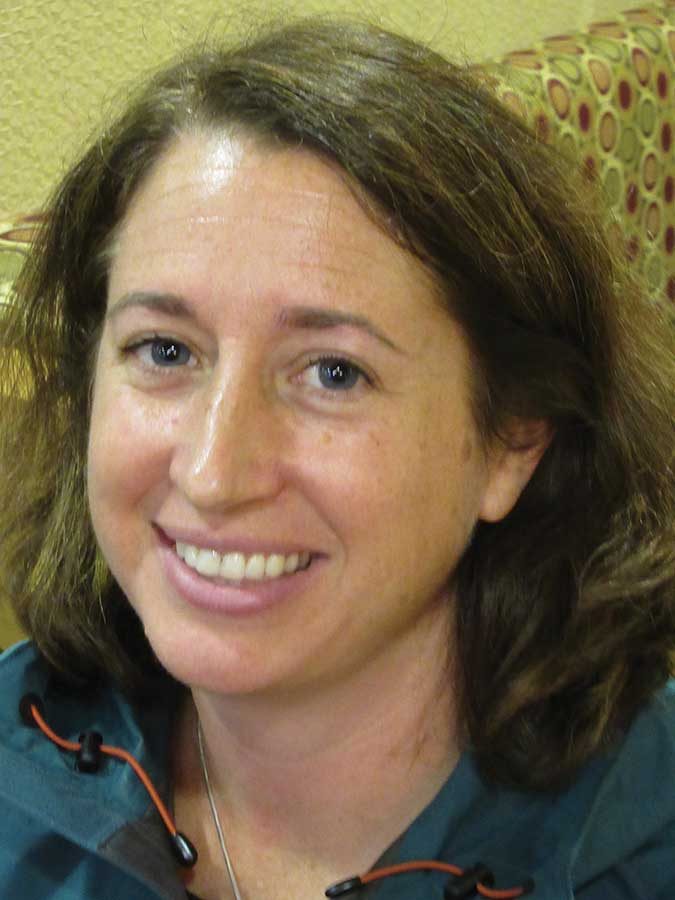NVU-J receives $1.8 million grant
Kathleen Brinegar
NVU-Johnson has received a Title III grant for $1.8 million over five years.
The grant is meant to create integrated academic support for students. It aims to continue NVU-Johnson’s strong first-year experience efforts as well as to provide additional support for years two through four.
“This grant will support measures to enhance student success through retention and graduation,” wrote NVU President Elaine C. Collins in an email to the university community. “The grant will enable the Johnson campus to bolster academic and career advising, increase opportunities for undergraduate research and internships, and modify large, introductory courses that most first- and second-year students take in various disciplines.
“Through innovative approaches toward retention piloted on the Johnson campus, this grant will be leveraged to help NVU improve retention throughout the four years on both NVU campuses so we can see our students through to graduation and career success. Please join me in thanking Dan Regan, JSC’s former dean of academic affairs and NVU accreditation liaison, for his incredible work in support of the Title III grant request.”
Collins also thanked the Vermont congressional delegation, Senator Patrick Leahy, Senator Bernie Sanders and Representative Peter Welch, for their invaluable and critical support in securing this funding.
The grant is multi-faceted, facilitating a holistic approach to the issue of retention. “There’s a few different components of the grant,” says Kathleen Brinegar, associate professor of education and associate academic dean. “One is a focus on new or shifting positions that help offer more centralized support for students across advising, academic support services and anything related to first year experience and expanding that to include someone who is position focused on retention.”
According to Brinegar, the university will now have money to hire a new advisor for second, third and fourth year students and to look at institutional research. This would include collecting data pertaining to student retention and success rates to find out what’s really working and what’s not.
Another aspect of the grant pertains to faculty development, noted Brinegar, adding that faculty can apply for mini grants to help improve their courses and teaching.
“Another looks at increasing fund in the university’s endowment. This allows you to do additional things,” says Brinegar. “As we get people to donate, we can match those funds with the grant. So, say someone donates $15,000 to something related to academics on campus, we can put $15,000 from the grant in and give $30,000 to the university.”
The grant also provides money for things such as joining or rejoining some professional higher education organizations that Johnson State College used to be a member of but isn’t anymore. This will include organizations like the Education Advisory Board.
Brinegar notes it’s important to keep in mind the university hasn’t officially decided what positions it is going to hire for yet. To oversee the grant administration, there will be a committee consisting of staff, faculty, and administrators who will direct all of the grant-related initiatives.
“Our big task now is pulling the committee together and starting to think about data and what students need and how we can better keep students here once they start,” said Brinegar.
Brinegar says this committee will be receptive to student input. This will happen in a variety of ways. Some of these will be looking back at previous student surveys, first year surveys and advising surveys from every year, and have focus groups with students on those surveys.
“I have no doubt that in some way we’ll involve student leadership through SGA in terms of getting that feedback on initiatives, ideas and plans,” she said. “It’s tricky because retention is so complex. We had a five-year Title III grant here from 2004 to 2009. I believe at that point the efforts on the grant increased retention rates about 10 percent from where they were when the grant started in 2004.”
The committee plans to find the general profile of students who come to NVU and graduate within that six-year window and look at what factors contribute to certain students leaving. They may possibly work with admissions to help make use of this data.
“The key is we want to do it in a data-supported way,” said Brinegar. “The exciting part is getting to reconsider how we approach student success.”



